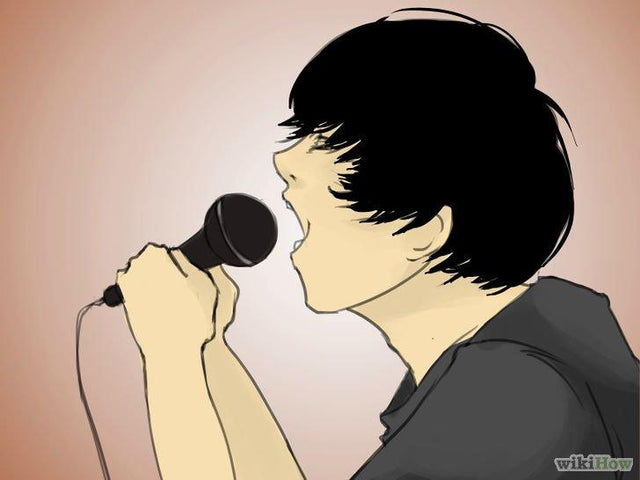Only Death Is Real: The Life-Affirming Power Of Bell Witch's 1 Song, 83-Minute Mirror Reaper
Usually, Deaf Forever highlights the best metal (and metalish) records every month. For October’s edition, we’ll dive deep into a record so massive, it needs its whole column: Bell Witch’s Mirror Reaper, which came out last month on Profound Lore.
“Only death is real.”
Hellhammer, the Swiss band that would eventually morph into metal pioneers Celtic Frost, made that phrase famous in their song “Messiah,” from their Satanic Rites demo. It’s a simple truth, that our only real common bond is that we’ll all die eventually. It was a truth that fit in with their brutish sound, the genesis of death and black metal, raw and necro to the fullest. That phrase took on new significance as their bassist Martin Ain died on October 21. Metal lost one of its key architects, and this was one of our most significant losses in quite some time.
“Only death is real.”
Yeah, no shit. I know that too well.
I think about going to the other side quite a bit. Going beyond the realms of death. These feelings have intensified in the past few years, despite continuing to score bylines on a regular basis, despite therapy, despite having a support system most people without suicidal thoughts would be extremely fucking lucky to have. The band that has helped me the most with keeping these thoughts at bay is Bell Witch, a Seattle-based doom duo comprised of bassist/vocalist Dylan Desmond and drummer/vocalist Jesse Shreibman. When I listen to them, they eat at my depression’s most sinister manifestation, devouring it through Desmond’s dual role as hammerer and melodic driver, conjuring waves of crushing bass and the most delicate melodies at the same time.
Bell Witch’s third record, Mirror Reaper, is a single 83-minute track, their most intimidating and also their most affirming work yet. Its length is merited because it is everything about Bell Witch taken to its most extreme. Desmond’s melodies have never been more beautiful, and his doom has never been heavier. Weight has never been tossed around so viciously, so freely. Mirror hits like boulders, but boulders being thrown around by beings who can bench at least a whole planet. Doomy plods feel even more drawn out, more tortured, almost as if you can feel a face contorting into damnation. Shreibman also brings organ into the mix, adding another layer of breathtaking despair.
“Only death is real,” because God isn’t. Mirror works as a mass for the despondent, for the faithless, for the truly lost. That’s why it’s meant to be listened to as a single track. Even if you don’t believe in the afterlife, Mirror is spiritual, a voyage to an alternate reality where disconnection is the ultimate salvation, at the price of life. Desmond plays with praise with a haunting specter never far behind; Shreibman is also devotional, welding a rapture’s power without its joyousness. As on every Bell Witch record, Aerial Ruin vocalist Erik Moggridge contributes sonorous cleans, and he should be considered a third member of the band at this point. He acts as Bell Witch’s Charon, guiding you through a Styx of every tantalizing possibility of self-harm and death, and steering towards the warmth of life that’s ultimately worth it, if distant. Moggridge comes in at more than 51 minutes into Mirror, and even with pretty much a whole record gone by at that point by most bands’ standards, the real devastation is yet to come. He’s at his most powerful when Desmond’s bass is at its loneliest . As Shreibman’s organ creeps in, Moggridge’s voice only grows more celestial. His voice becomes light, becomes a navigational star. When his voice fades, the sky turns black in an instant, organ and bass more flickers than raging fires. Like Desmond’s playing, it both carries insurmountable weight with ease and feels like it could fall apart at any time simultaneously.
Death hangs over Bell Witch on Mirror more than ever — former drummer/vocalist Adrian Guerra passed away last year, and some of his vocals-- which were recorded during their last record Four Phantoms-- appear here, possibly the last recording he’ll ever be on. They come in the middle of record, in an orgy of pained growls and shrieks. A celebration? A funeral? An attack? It’s all of that, and him appearing from beyond death’s grip makes sense, yet it’s still a mindfuck. We were brought into this grief, we submit to it because we don’t listen to Bell Witch when we’re feeling on the up and up. We revel in the grief, and it doesn’t erase how unsettling it is to hear him.
Only two other records this year sit with Mirror: Loss’ Horizonless (which is dedicated to Guerra) and Mount Eerie’s A Crow Looked At Me, both of which explore mourning at its most excruciating. Loss takes on the darkness of romanticizing both of those things; Mount Eerie’s record is a blow by blow account of losing your wife and raising your daughter alone, of having your dream life stripped away without mercy, without much of a sensible explanation, fate fucking you over. Mirror’s place is what always worked for Bell Witch: they, more than any band, understands the physical pain of hating yourself so much that you want to die. We know suicide is violence, but only in the final action. Living up until the point is violence too, fighting against those thoughts, draining you in the process. And it does manifest itself physically, as the mental is often the physical too. That’s why Desmond’s lines, as beautiful as they are, cut so vividly with anguish. That’s why Shreibman’s hits feel like the very hands of fate coming down on you. That’s why Mirror’s loveliness is so turbulent, how doom can be at its slowest and heaviest and yet its most aerodynamic. Grief is all-consuming, that’s why Mirror wouldn’t make sense broken up.
Recently, I saw British quartet Warning’s first-ever show in Austin on a tour where they played their second album Watching From A Distance in its entirety. They were ahead of their time — Pallbearer borrowed quite a bit of their sound from them — but Patrick Walker ushered in a new sense of vulnerability that a lot of the metal world needs to catch up to. “Footprints” is gorgeous because it’s so devastating, Walker sounding like a conqueror mortally wounded, soaring high as he tosses himself into an endless descent. The last verse haunts me the most: “And through all the battles around me/I never believed I would fight,/Yet here I stand a broken soldier / Shivering, naked, in your winter light,” Walker splayed himself open and admitted defeat, withering in the cold, and yet he’s also victorious for having the will to do so. They paved the way for Bell Witch and many other slow doom acts, and seeing Warning affirmed how powerful Mirror really is. It’s a metal record that asks not what you can triumph over or how you can stretch your mind towards transcendence; it’s asking you to be valiant against the coldness of life, where you win by letting it take everything out of you.
“Only death is real.” Mirror affirms and also challenges that reality, taking you to the extremes of pain, that death is very much a part of life but there’s more to it. And it’s ultimately what the best metal does: it brings forth torrents of negativity and violence, aching you beyond comprehension, in the service that life is worth living. There isn’t a wrong way to grieve, what matters is that you give yourself the space to do so. Let it devour you, as I’ve let Bell Witch devour me in my worst hours.
Andy O’Connor heads SPIN’s monthly metal column, Blast Rites, and also has bylines in Pitchfork, Vice, Decibel, Texas Monthly and Bandcamp Daily, among others. He lives in Austin, Texas.
Join the Club!
Join Now, Starting at $44Exclusive 15% Off for Teachers, Students, Military members, Healthcare professionals & First Responders - Get Verified!











